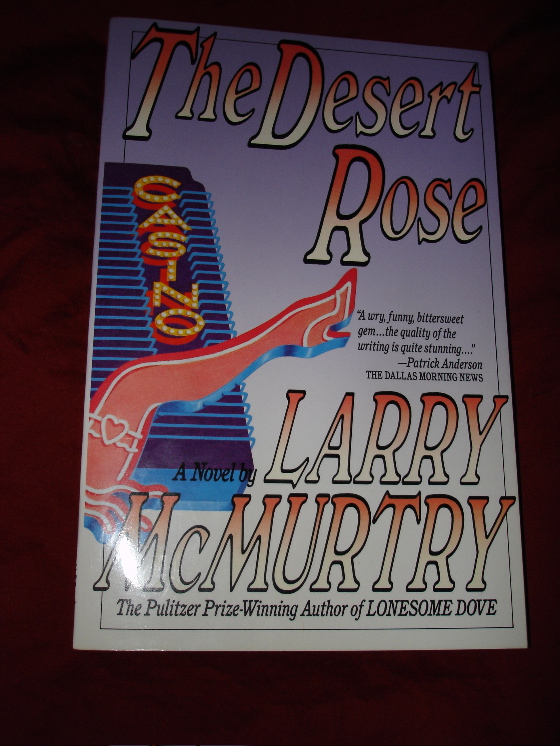
Larry
McMurtry's Lonesome Dove is one of the great American novels. He took
three weeks off from writing it to pen The Desert Rose, which is a
fine novel in its own right, and one of the best ever written about Las
Vegas. Set in the 80s, when Vegas was a little down on its luck, it's
the story of a showgirl coming to the end of her career as her teenage
daughter starts one, as a dancer in the casino where her mother works.
It captures the melancholy laced with enchantment that can overtake
people who actually live and work in this strange town — the
good-natured sadness you often see in the eyes of older cocktail
waitresses . . . in their relentless hopefulness that you're not going
to be a jerk.
There
are only a couple of revues left in town which feature showgirls like
Harmony, the novel's protagonist, but the type of woman who is
basically paid to be beautiful remains — and the town has its share of
girls like her daughter Pepper, whom the system has robbed of joy and
compassion.
In
Harmony, McMurtry creates a character whose only strength is optimism,
but he grants her the grandeur of that strength, without condescension.
She's a wondrous creation — as heroic in her way as any of the
legendary frontiersmen of his period fiction.
The
Desert Rose is period fiction itself now, twenty years on, but the
feel of the city hasn't changed all that much — it still takes courage
to find real joy amidst the ruthless merriment of it all . . . and
women like Harmony are still the key to everything.
